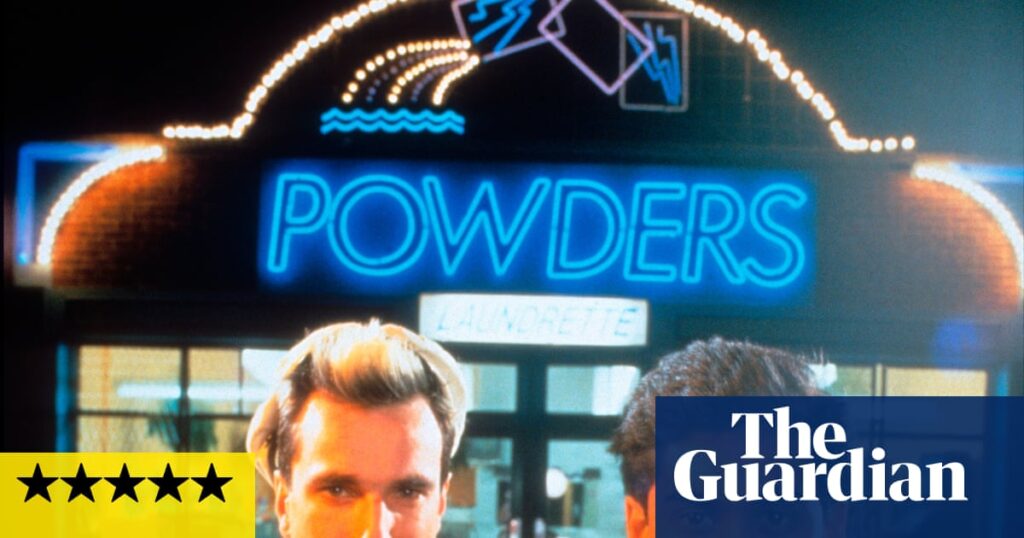‘The jewel in the jacksie of south London this place’ll be!” Now getting a 40th anniversary rerelease, this classic Brit comedy from screenwriter Hanif Kureishi and director Stephen Frears has for me the jaunty spirit of Ealing, maybe because the bleeping, burping, bubbling musical theme feels like a recurrent motif in The Man in the White Suit. It’s a vibrant, funny, complicated allegory of a down-at-heel launderette in a dreary London parade of shops, which gets laundered and cleaned up by south Asians who are subjected to nothing but racist abuse. It was formerly called Churchill’s Laundrette and now cheekily renamed Powders, in homage to washing powder or to income from a different powder which this place is going to launder.
It is a sharp, smart picture, with English eccentricity, sly quirk and political subversion, that represents a brilliant and almost unique engagement with contemporary history in 80s British cinema: a satire of Mrs Thatcher’s Britain which involved playing Toryism at its own game. This was the world in which the Conservative government brought in the Enterprise Allowance Scheme to bring down the unemployment-claimant figures, but found that immigration stimulated enterprise. Kureishi’s writing was part of the new energy of postcolonial literature; it came from the same place as Salman Rushdie’s Midnight’s Children and Timothy Mo’s Sour Sweet.
There are terrific performances from those titans of British-Indian acting: Roshan Seth and Saeed Jaffrey as brothers Nasser and Hussein Ali; Nasser is a melancholy intellectual socialist with a drinking problem; Hussein is a rackety businessman, poignantly in love with his white lover Rachel (Shirley Anne Field). Hussein hires Nasser’s apparently gormless son Omar (Gordon Warnecke) to run his crumbling launderette – and Omar figures out that with a little imagination and by siphoning off drug profits belonging to his cousin Salim (Derrick Branche) he can turn this into the most beautiful and lucrative launderette in London. But Omar has a secret: he is gay and in love with Johnny, played by Daniel Day-Lewis in his first lead film role, a white punk tearaway who once marched in the streets with the racists but now feels something for Omar and remembers Nasser’s kindness to him as a child.
My Beautiful Laundrette is a vivid time capsule for the gloomy London streets of that time; it’s also an essay in gentrification, like Mike Leigh’s High Hopes and John Mackenzie’s The Long Good Friday – and it’s a reminder of a time when videotapes and VCRs were almost unimaginably exciting consumer goods. Day-Lewis at this stage had not quite evolved into the mature screen actor that he was soon to be, and tough-guy fisticuffs were not exactly his forte, but he always sold it with conviction; this was a homophobic era when gay love, presented clearly and unapologetically, was a rarity. Warnecke’s line readings feel perhaps a little bit theatrical sometimes, but he has enormous charm and presence. Rita Wolf is excellent as Tania, the exasperated cousin to whom Omar is expected to marry but who wants and demands more.
“How could anyone call this silly little island home?” asks one of Omar’s relatives. But they do, and that complex, love-hate relationship is the film’s fabric.


